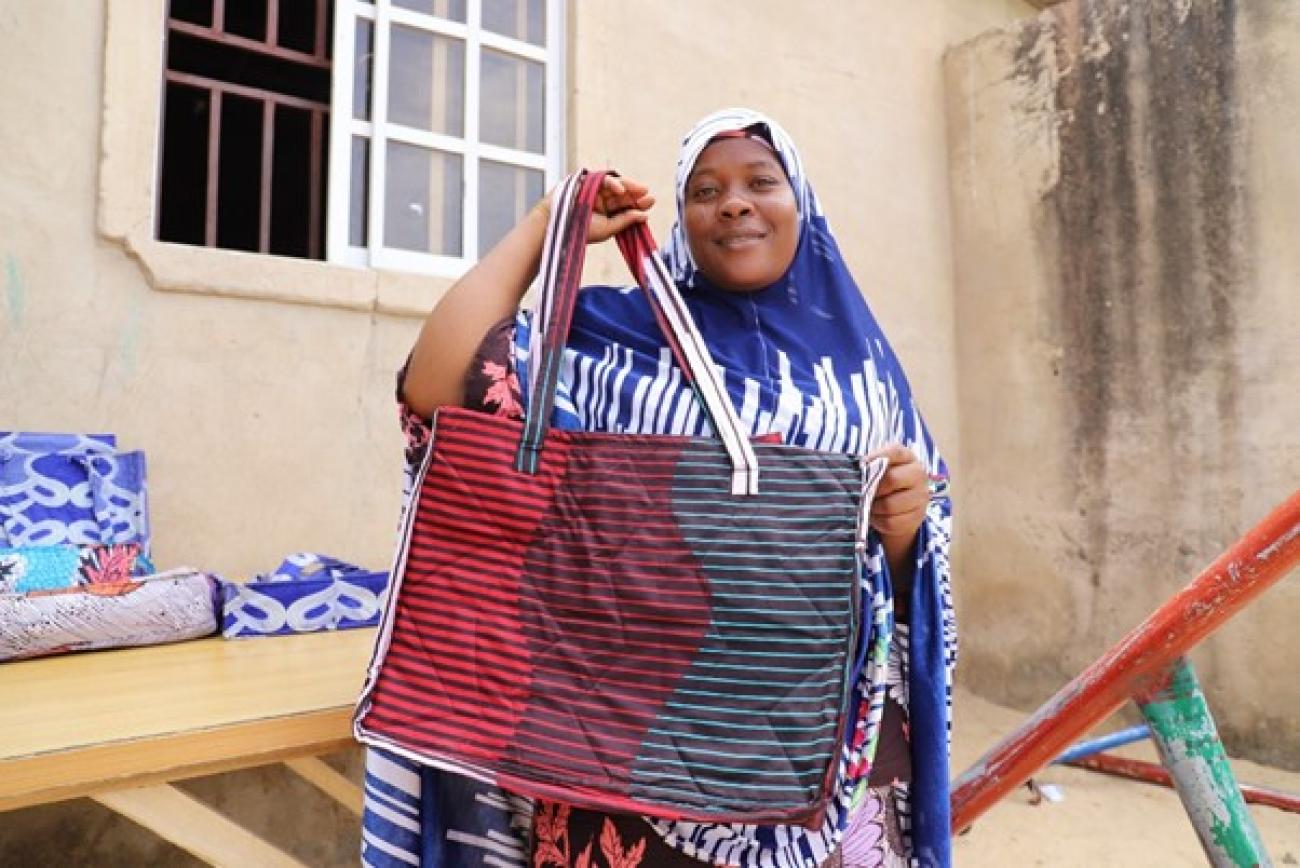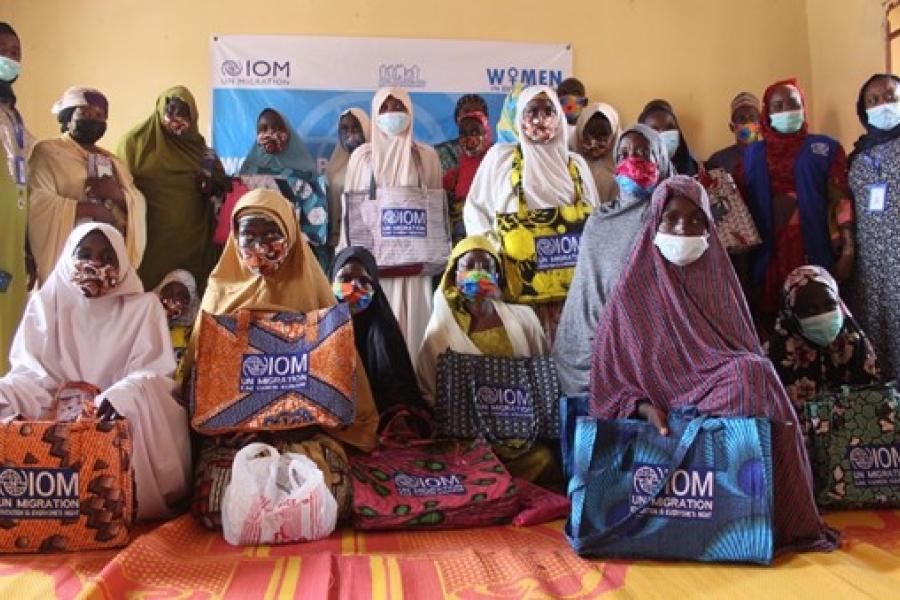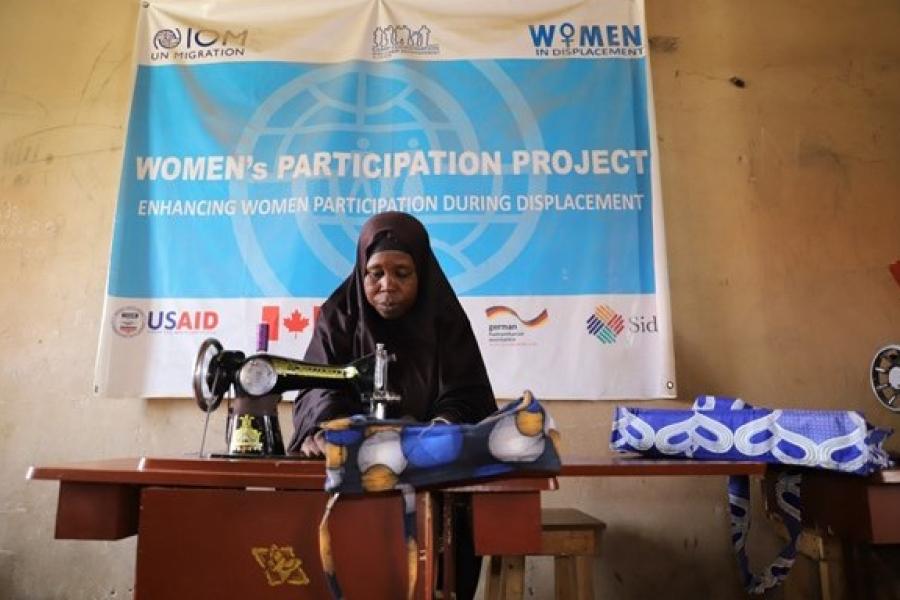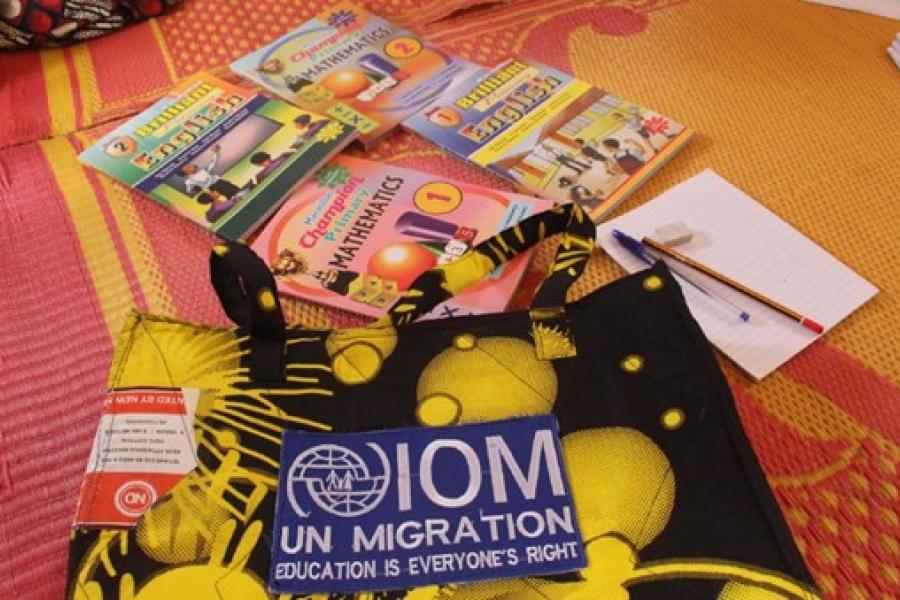Empowering Displaced Women, Girls and Persons with Disabilities in North-East Nigeria

"Women and girls experience displacement differently from men and boys and face specific challenges such as exclusion from decision making processes."
Since 2009 and the start of conflict in northeast Nigeria, millions of people have been displaced. More than two million are living in temporary settlements and camp sites across Borno, Adamawa and Yobe states. More than half of the displaced population living in camps in northeast Nigeria are women and girls.
They experience displacement differently from men and boys and face specific challenges such as exclusion from decision making processes and participation in livelihood activities. Those with disabilities are further excluded and alienated which has a direct impact on their well-being and psychosocial health. Their concerns and voices are unheard.

The Women’s Participation Project (WPP) of the International Organization for Migration (IOM), has since 2018 sought to empower individuals affected by these challenges while ensuring that cultural norms and customary traditions of the displaced populations are respected. It further seeks to enhance women’s participation in decision making to reduce their perception of risk to gender-based violence. This is achieved through livelihood support in tailoring, traditional pasta making and cap making, leadership skills training, inclusion of people with disabilities in camp activities through provision of mobility aids/assistive devices among others.
Falmata is a 55-year-old mother living in an IDP camp in Bama. She has a proactive role in the camp as a representative of all women IDPs. Since she got involved in the WPP she has been vouching for women’s views and concerns where decisions are taken, encouraging women to participate in camp activities.

“I can now freely talk in front of men and express my needs and concerns about the household and children,” Falmata admits with confidence.
To date the WPP is in nine camps in six Local Government Area (LGAs) where more than 9,720 individuals have benefited through various activities.
“Myself and other people with disabilities were not allowed to take part in any camp activity.” says Habiba, a 30-year-old woman from Bama LGA. Now things are different thanks to the sensitization conducted by the Women’s Participation Project team in the camp. We, the people with disabilities, are now participating in training courses for leadership skills and facemasks production. Joining the women’s committee has been extremely helpful because women and girls with disabilities have now been recognized and are involved in camp activities.”

In response to the COVID-19 pandemic, 41 women and girls, including those with disabilities, were trained in the production of facemasks. In just a few months, they produced 21,000 facemasks which were distributed in Gubio camp, Borno State, to help prevent the spread of COVID-19.
“I used to watch my brother sewing at home.” says Habiba. “I always had a passion for sewing but I can’t press and propel the machine with my legs. I am grateful to WPP for the special hand sewing machine and training provided by IOM. I would like to get my own sewing machine and start a tailoring business after this skills acquisition programme.”
The WPP started in 2016, by carrying out a pilot study in Adamawa state and with support from USAID it was extended to more LGAs in northeast Nigeria in 2018.




